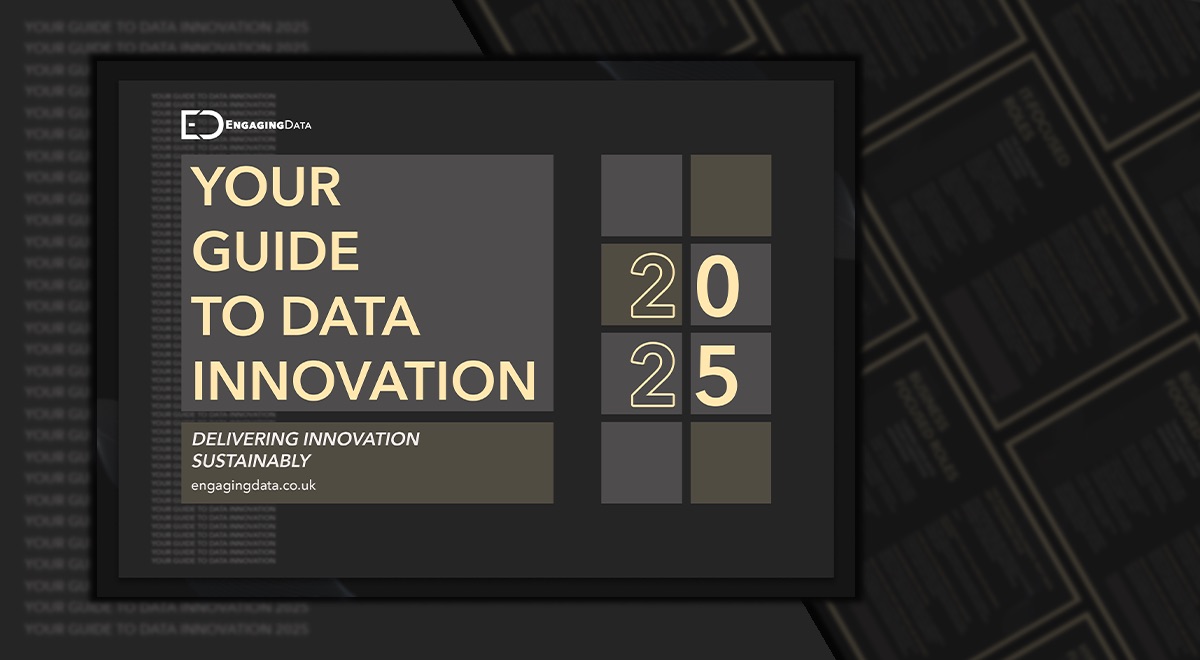How Leaders Are Turning Data into Competitive Advantage in 2025
Why Data Innovation Can’t Wait Until 2026
In 2025, data innovation is no longer optional – it’s a business imperative.
Many organisation have spent years investing in data infrastructure yet still struggling to generate tangible ROI.
The reason?
Legacy systems, fragmented data strategies, and a lack of innovation.
The gap between data-driven enterprises and those falling behind is accelerating – and the cost of inaction is rising.
The High Stakes of Data Inaction
Why Outdated Data Strategies are Putting Businesses at Risk
If your organisation is relying on outdated, static, or siloed data, the risks go far beyond inefficiency.
Failing to innovate comes with real business consequences:
- Slower decision-making: Without real-time data insights, your teams can’t respond to market shifts or emerging risks in time.
- Compliance and regulatory exposure: new regulations, and upcoming AI laws are raising the bar on data governance.
- Operational drag: Legacy technology and poor data quality slow down your teams and limit your ability to scale.
- Missed AI opportunities: As artificial intelligence becomes mainstream, organisations without strong data foundations will fall behind.
Data is no longer just an asset – it’s an engine of innovation and survival.
2025: The Tipping Point for Data-Driven Organisations
What’s Driving the Urgency to Modernise Now?
The pressure to act is being driven by four major tends:
1. AI Everywhere – But not for Everyone
Artificial intelligence is embedded across business functions. From customer service to product design, AI is transforming operations – but only for those with the right data foundations.
S#!T data = S#!T AI.
If your data is outdated, unstructured, or inconsistent, AI won’t deliver results. Instead, it will amplify your weaknesses.
2. Real-Time, Embedded Analytics
Static dashboards are no longer enough.
The future is embedded analytics – delivering insights within everyday workflows to empower faster, data-informed decisions across every function.
3. Compliance, Governance, and Ethical AI
The regulatory landscape is tightening.
Organisations must now demonstrate strong data stewardship, transparency in AI models, and full compliance with evolving privacy and governance frameworks.
4. Cloud-native Scalable Architecture
Businesses are moving away from inflexible, on-premise infrastructure.
Cloud-native platforms and data fabric architectures offer the agility and scalability needed for real-time data streaming and AI integration.
What Happens if You Don’t Innovate?
The Real Costs of Delay
Failing to modernise your data strategy in 2025 will impact:
- Compliance: Hefty fines and legal consequences from data misuse or lack of governance.
- Relevance: Losing out to agile, AI-native competitors who can pivot and scale faster.
- Resources: Wasted spend on outdated tools and infrastructure that can’t support innovation.
- Talent: Difficulty attracting top-tier professionals who expect a modern, data-savvy workplace.
Standing still is falling behind.
What You Can Do Today: Start with the Right Role-Based Strategy
Practical Data Innovation Starts with Leadership – and Clear Action Plans
That’s why we have created the 2025 Guide to Data Innovation – a comprehensive eBook to help you turn strategy into execution, tailored to your role.
Inside the guide, you’ll get job-specific recommendations for:
- Data-Focused Roles: The architects of data-driven success
- IT-Focused Roles: The backbone of data-driven innovation
- Business Focused Roles: Turning data into your competitive advantage
- Hybrid & Cross Functional Roles: Bridging the gap between data, IT, and business
Download our 2025 Guide to Data Innovation
Discover how forward-thinking organisations are embedding data into business strategy – and how your teams can lead the way.

Data Innovation is No Longer Optional
Be the Leader That Drive Change – Before You’re Forced to Catch Up
Business leaders who act now will gain a long-term advantage.
Those who delay? They risk their organisation becoming irrelevant.
Modern and innovative data strategies are no longer just about technology – they’re about agility, compliance, trust, and value creation.
Start with your role. Start with the right questions. Start with our guidance.
Book Your Data Innovation Session!
In this 30-minute session, we’ll explore how you can drive efficiency, reduce costs, and uncover new growth opportunities by leveraging data in smarter ways.
